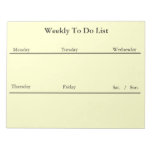Starting your own business is all the rage today, as many professionals find it more profitable to earn money on the side or fully commit to entrepreneurship rather than relying on a traditional job alone. However, growing your business often takes more than one person's skills. It’s possible you’ll have a better chance of accomplishing your goals if you team up with someone whose skills complement your own.
Maybe you’ve thought about starting a business partnership with a friend? After all, you get along well and you both have a lot of great ideas. However, you may want to think twice. Just like any relationship, before you take it to the next level, you’ll want to set expectations and clarify roles. Brandon Smith, known as The Workplace Therapist, says he believes clarifying goals and plans is critical for “going steady” with any business partner. To ensure unmet expectations don't end with your business partnership and friendship in annulment, he offers the following advice:
Decide who wears the pants. Clarify your roles before you get started.
What will each of you do in the partnership? Is one individual the creative type and the other more business-minded? Maybe one of you is the finance and operations type, while the other loves dealing directly with customers and clients. “Clarify who is going to do what and try to allocate work evenly," Smith says. "One of the main reasons for failed businesses between friends are fuzzy roles resulting in one person carrying a much bigger load than the other. When this happens, resentment creeps in and soon the relationship – one or both – ends.”
Identify if you share the same vision. Clarify your needs and expectations.
Talk about how you want to work together. Smith recalls: “I had a friend I went into business with, and we didn't take this step with the same vision in mind. I expected him to respond to me ASAP when I sent an email or left a voicemail. He didn't like to respond at all. As a result, our disconnect ended our business relationship after only two years.” Make sure you both agree how you’ll run the business. “Clarify what you need and expect from one another," Smith adds. "Consider things like responsiveness, what kind of support you need, how you want to approach decision-making, how much freedom each of you need, and business growth timelines. It's all about being on the same page.”
Do you practice healthy communication? Clarify how you are going to give each other feedback. Similar to all relationships, there will be times when all is well and times when things get bumpy. “That’s okay! It's natural and healthy when handled with care," Smith explains. "What's important is to talk through how you are going to give each other feedback when those bumps in the road do arise.” Make sure to schedule regular meetings and touch base frequently to give each other feedback. This likely will be uncomfortable at first, as friends don’t always make a point of giving each other honest feedback. Make it a regular date so it will be more natural and less uncomfortable.








No comments:
Post a Comment